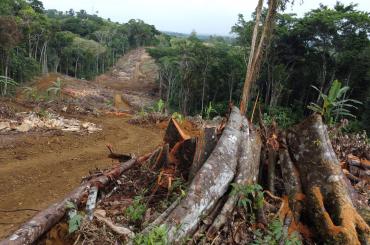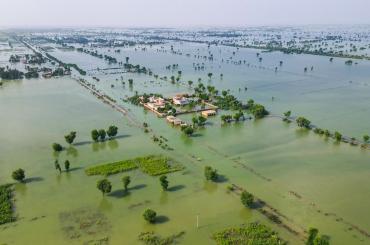

Robin Burgess
Professor of Economics; Director, International Growth Centre, LSE
Robin Burgess is Professor of Economics, Founder and Director of the International Growth Centre, and Director of the Economic Organisation and Public Policy Programme all at the London School of Economics.
He was brought up in Uganda, Tanzania, Malawi, the US, the Philippines and Italy where his father worked as a doctor and his mother as a child nutritionist. He received a B.Sc. in Biological Sciences from Edinburgh University, a M.Sc. in Economics from the LSE and a PhD in Economics from Oxford University.
His areas of research interest include development economics, public economics, political economy, labor economics and environmental economics. He has published on a variety of topics – natural disasters, mass media, rural banks, land reform, labor regulation, industrial policy, taxation, poverty and growth. He has been a Visiting Assistant and Associate Professor of Economics at the Massachusetts Institute of Technology, Harvard University, the National Bureau of Economic Research, Ecole Polytechnique, University College London and the University of California at Berkeley. He is Program Director of the Development Economics Program at the Centre for Economic Policy Research (CEPR), a Member of the Board of the Bureau for Research in the Economic Analysis of Development (BREAD), a Faculty Research Fellow at the National Bureau for Economic Research (NBER), a member of the Abdul Latif Jameel Poverty Action Lab (J-PAL), a Fellow of the European Development Research Development Network (EUDN), a member of the Institute for Policy Dialogue (IPR), an Associate Editor of the Economic Journal and is the Founder and Director of the Microeconomics of Growth Research Network.
Before joining academia he served as a consultant economist with the World Bank, the European Bank for Reconstruction and Development, and the Government of India. He lives in North London with his wife Bronwen Burgess and daughters Isla Macbeth Burgess and Romilly Belle Burgess.
Recent work by Robin Burgess
-

National policy reversals and deforestation in the Amazon
Evidence from the Amazon highlights the crucial role of policy continuity and political commitment to achieving sustainable conservation outcomes
Published 05.04.24
-

Environmental economics and policy in low- and middle-income countries
What can policymakers in low- and middle-income countries learn from environmental economics?
Published 27.09.23
-

Looking for work: Evidence from the Ugandan labour market
While vocational training helps young job seekers find work, overconfidence in finding a job has important long-term effects on job-seeking behaviour
Published 24.11.21
-

Risky behaviour: Evidence from fire setting in Indonesia’s forests
Firms overuse fires when risks are not internalised, but greater sanctions could significantly reduce forest fire spread
Published 27.10.21
-

Should electricity be a right? Evidence from India
A social norm in which people deserve access to electricity regardless of payment may actually be undermining efforts for universal access
Published 18.11.20
-

Do social structures affect the success of development policies?
Policy delivery agents perform better when working with members of their own social groups thereby affecting the efficiency of policy interventions
Published 23.09.20
-

Why does poverty persist?
Does poverty continue due to differences in ability or limited access to opportunities?
Published 22.07.20
-

Is it time to rethink poverty policy?
New study offers perhaps the first empirical example of poverty traps and shows that one-off transfers can provide a sustainable route out of poverty
Published 14.02.20
-

Should civil servants be allowed to serve in their home areas? Evidence from India
Assigning civil servants to environments to which they are most socially proximate may actually limit their ability to effectively serve the nation
Published 08.04.19